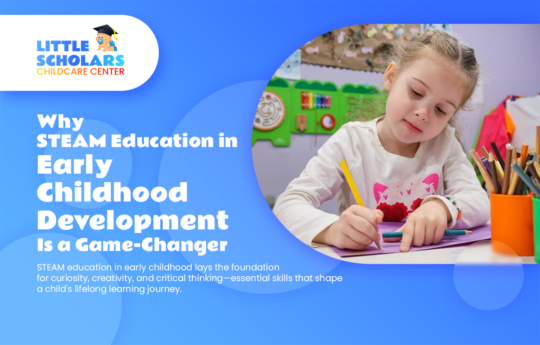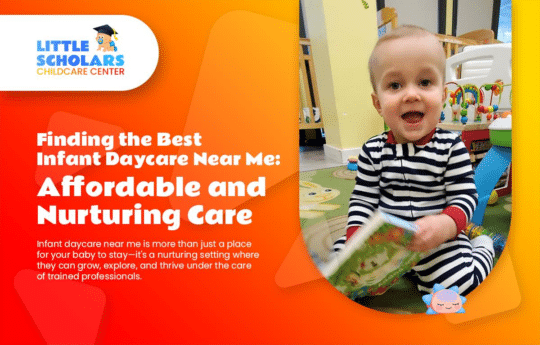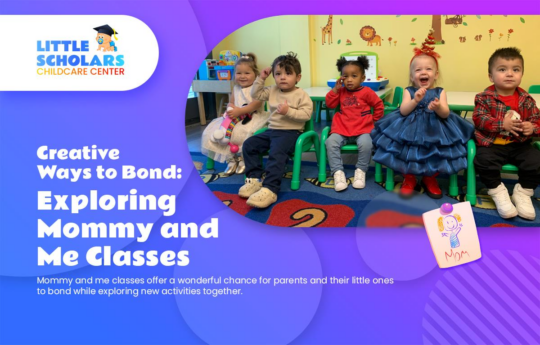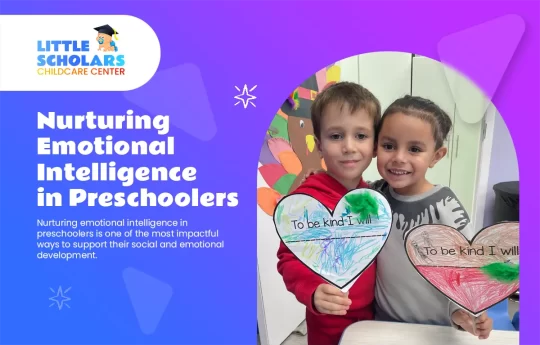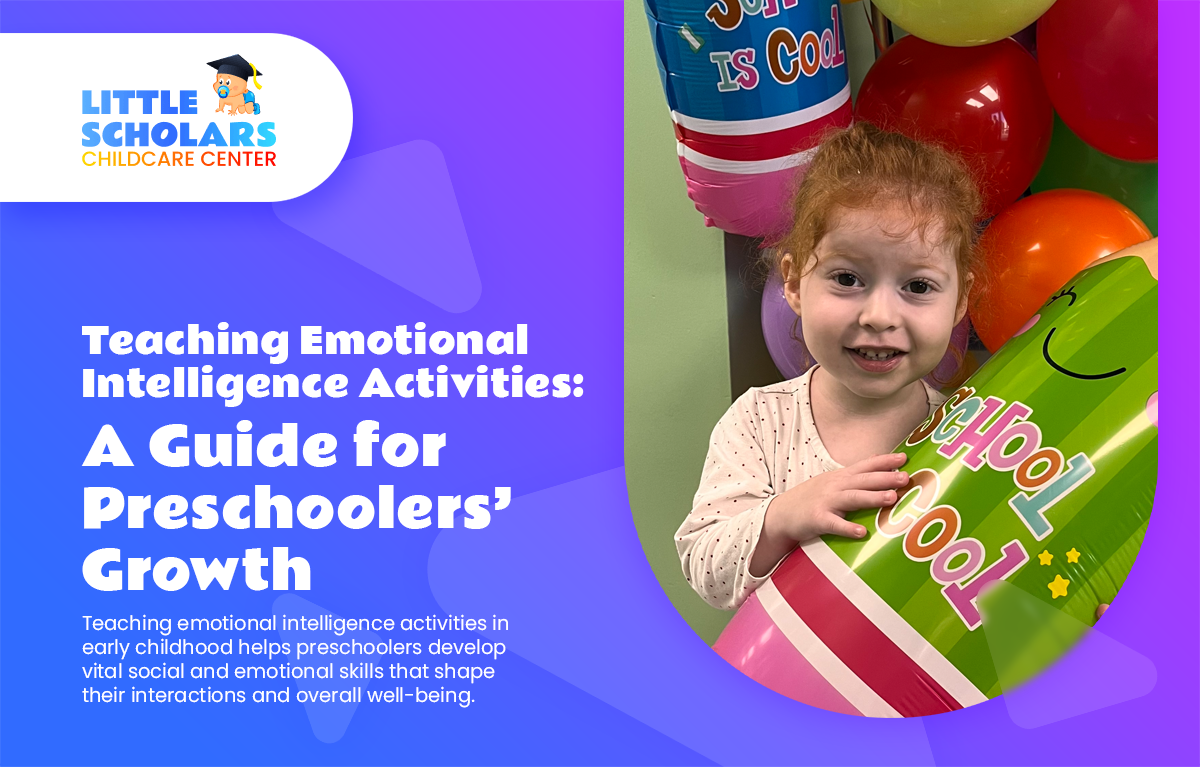
Teaching emotional intelligence activities in early childhood helps preschoolers develop vital social and emotional skills that shape their interactions and overall well-being. At this young age, children are just beginning to understand their emotions and how to express them healthily. Engaging in playful, hands-on activities teaches them to recognize feelings, manage emotions, and build positive relationships with others.
A strong foundation in emotional intelligence boosts confidence, improves communication, and fosters empathy—key qualities that support lifelong success. Through storytelling, role-playing, and interactive games, preschoolers can develop emotional awareness in a fun and meaningful way, setting them up for a future filled with strong connections and self-assurance.
The Importance of Social-Emotional Learning for Preschoolers
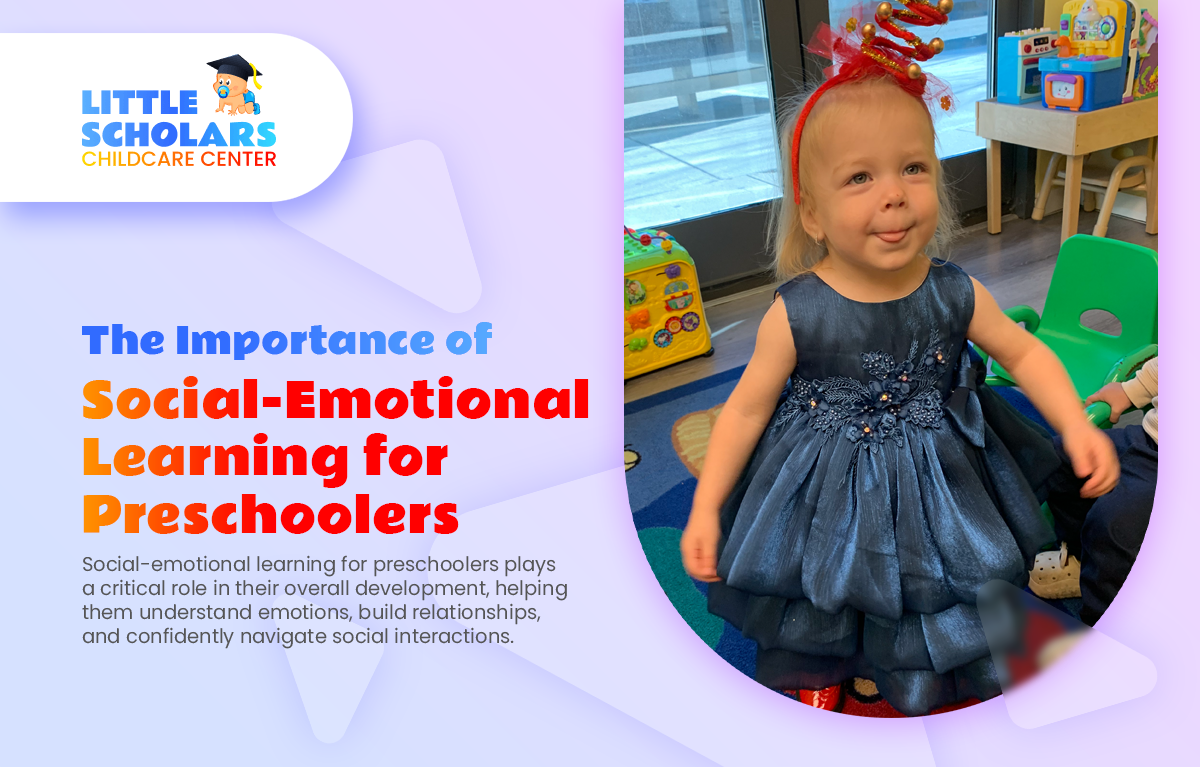
Social-emotional learning for preschoolers plays a critical role in their overall development, helping them understand emotions, build relationships, and confidently navigate social interactions. Children are learning how to express their feelings, cooperate with others, and develop self-awareness at this early stage. A strong foundation in emotional intelligence supports their well-being and academic and social success in the future.
Why Emotional Intelligence Matters in Early Childhood
Emotional intelligence is as important as cognitive skills in shaping a child’s growth. When preschoolers learn to manage their emotions and understand the feelings of others, they build the ability to communicate effectively and work on positive relationships.
- Enhances communication skills: Children who can identify and express emotions are better equipped to communicate their needs and feelings.
- Fosters empathy and kindness: Understanding emotions helps children recognize and respect the feelings of others, leading to more compassionate interactions.
- Improves conflict resolution: Children who are Emotionally aware are more likely to use problem-solving skills rather than react impulsively during disagreements.
By nurturing emotional intelligence early, parents and educators help children develop confidence, self-control, and the ability to form meaningful connections with others.
How Social-Emotional Learning Supports Cognitive and Behavioral Growth
A well-rounded preschool curriculum includes emotional learning alongside academic subjects. Studies show that children with strong emotional intelligence perform better in school and adapt more easily to new experiences.
- Encourages self-regulation: Learning how to manage emotions helps children stay focused, reduce frustration, and increase their ability to concentrate.
- Boosts resilience: Social-emotional skills help children cope with challenges, whether making mistakes or dealing with disappointment.
- Strengthens decision-making skills: Children who understand emotions make thoughtful choices instead of acting impulsively.
These skills support a child’s ability to positively and constructively navigate different social settings, from the classroom to the playground.
Key Skills Preschoolers Develop Through Emotional Intelligence Activities
Teaching emotional intelligence involves more than just identifying emotions—it’s about helping children develop essential life skills that shape their future relationships and interactions.
- Self-awareness: Recognizing their own emotions and understanding how feelings affect behavior.
- Self-regulation: Managing emotions healthily, such as calming down when upset or waiting patiently for a turn.
- Social awareness: Comprehending the perspectives and emotions of others, leading to increased empathy.
- Relationship skills: Learning to make friends, communicate effectively, and resolve conflicts peacefully.
- Responsible decision-making: Making choices based on emotions, understanding consequences, and considering others’ feelings.
Educators and parents create a nurturing environment where children feel supported and understood by incorporating social-emotional learning for preschoolers into daily routines. Emotional intelligence is beneficial in early childhood and sets the stage for lifelong success in school, relationships, and personal growth.
Fun Activities to Develop Empathy in Young Learners
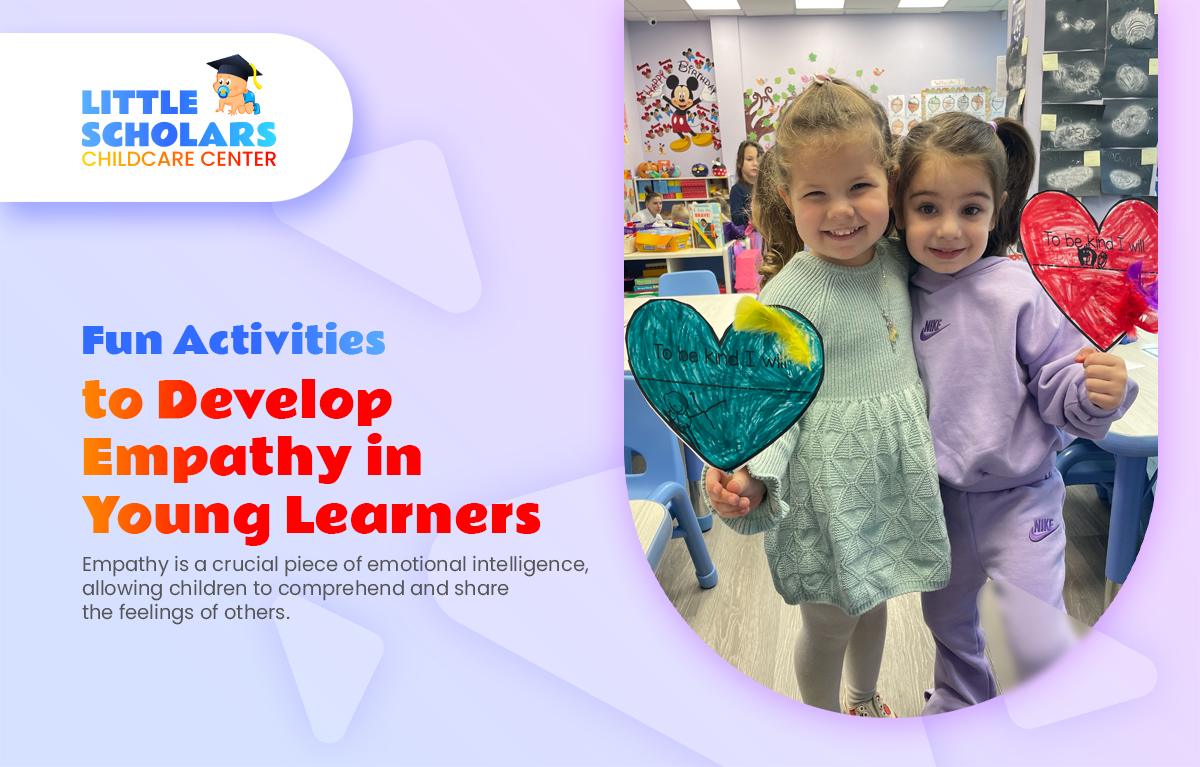
Empathy is a crucial piece of emotional intelligence, allowing children to comprehend and share the feelings of others. The best way to nurture empathy in young learners is through fun activities to develop empathy, where they can practice recognizing emotions, responding to others with care, and working together in meaningful ways. By integrating engaging and play-based experiences into their daily routine, children naturally develop the ability to consider different perspectives and show compassion in their interactions.
Storytelling and Role-Playing: Seeing the World Through Others’ Eyes
One of the most effective ways to teach empathy is through storytelling and role-playing. Stories enable children to step into the shoes of various characters, helping them experience emotions from another person’s perspective.
- Reading emotion-focused books: Choose stories with strong emotional themes, such as books about friendship, kindness, and understanding.
- Acting out different scenarios: Role-playing everyday social situations, such as sharing toys or comforting a friend, helps children practice empathetic responses.
- Encouraging perspective-taking: After reading a story, ask children how each character felt and what they would do in the same situation.
When children engage in storytelling and role-playing, they strengthen their ability to recognize emotions in others and respond with care and understanding.
Emotion Matching Games: Recognizing and Naming Feelings
Before children can show empathy, they need to recognize emotions in themselves and others. Emotion-based games make this process fun and interactive, reinforcing the connection between facial expressions, body language, and feelings.
- Emotion charades: Have children act out emotions (happy, sad, excited, frustrated) while others guess the feeling.
- Feelings flashcards: Show pictures of facial expressions and ask children to name the emotion.
- Mirror emotions: Ask children to copy facial expressions in a mirror to help them become more aware of different emotions.
These activities help young learners build a strong emotional vocabulary, making identifying and responding to feelings in social situations easier.
Kindness Projects: Practicing Empathy Through Action
Empathy isn’t just about recognizing emotions—it’s also about responding to others with kindness and support. Hands-on kindness activities allow children to practice small but meaningful acts of empathy.
- Making kindness cards: Have children create cards or drawings for classmates, teachers, or family members to brighten their day.
- Helping a friend: Encourage children to notice when someone needs help and offer support, whether picking up a dropped toy or sharing supplies.
- Gratitude circles: Take turns sharing something nice about a classmate or family member to reinforce appreciation and positive connections.
By practicing kindness in everyday moments, children learn that small gestures can make a big difference in how others feel.
Group Play and Cooperation Games: Learning to Work Together
Social interactions provide natural opportunities for children to develop empathy. Cooperative play encourages teamwork, active listening, and understanding of others’ needs and perspectives.
- Partner obstacle courses: Pair children up and have them guide each other through a simple obstacle course while taking turns being blindfolded.
- Building together: Give groups of children blocks or puzzles and encourage them to collaborate to create something.
- Emotion freeze dance: Play music and have children dance; when the music stops, call out emotion, and they must freeze with a matching expression.
Through cooperative games, children learn how to communicate, share, and support each other—key skills that build lasting empathy.
Building Emotional Skills in Early Childhood Through Daily Routines
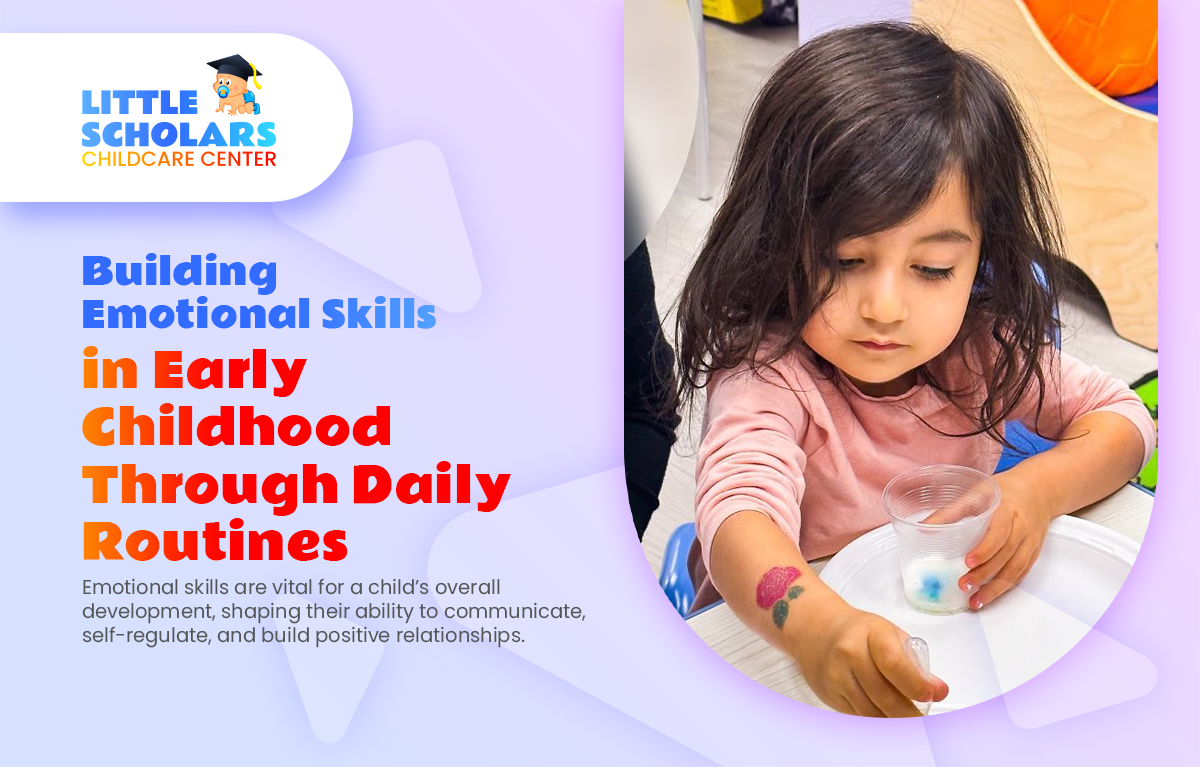
Emotional skills are vital for a child’s overall development, shaping their ability to communicate, self-regulate, and build positive relationships. Teaching these skills doesn’t require special lessons—it can be naturally integrated into everyday activities. Building emotional skills in early childhood through daily routines helps children develop self-awareness, empathy, and problem-solving abilities comfortably and familiarly.
Creating a Predictable and Supportive Environment
Children thrive in a structured environment where they feel safe and supported. Predictable routines help them build confidence, manage transitions, and handle emotions more effectively.
- Establishing consistent morning and bedtime routines: Simple steps like brushing teeth, reading a book, or having a calm moment before bed provide stability.
- Using visual schedules: Picture charts with daily activities help children know what to expect, reducing anxiety and emotional frustration.
- Encouraging self-care habits: Teaching children to dress themselves, wash hands, or clean up after play builds independence and self-regulation.
Children who feel secure in their routines are likelier to express emotions in healthy ways and easily navigate changes.
Encouraging Emotional Expression Through Conversation
Helping children put their feelings into words is a key part of emotional development. Daily conversations about emotions create a safe space for children to express themselves and understand how others feel.
- Asking feeling-based questions: Instead of “How was your day?” try asking, “What made you happy today?” or “Did anything make you feel frustrated?”
- Using emotion words in daily interactions: Label emotions throughout the day—“I see you’re excited about playing outside” or “It looks like you’re feeling frustrated with that puzzle.”
- Practicing active listening: Give children your full attention when they share their feelings, showing them that their emotions are valid and essential.
Children learn to recognize and show their emotions constructively by encouraging open conversations.
Modeling Positive Emotional Responses
Young children learn emotional skills by observing the adults around them. When parents and educators demonstrate healthy emotional responses, children pick up on those behaviors and apply them to their experiences.
- Expressing emotions openly: Saying things like, “I’m feeling a little overwhelmed, so I’m going to take a deep breath,” teaches children how to manage feelings.
- Showing empathy in everyday situations: Recognizing others’ emotions—“That child looks sad; let’s ask if they need help”—reinforces compassionate behavior.
- Using calm problem-solving strategies: Instead of reacting with frustration, modeling patience and thinking through solutions shows children how to handle challenges.
Children learn that feelings are natural and manageable by watching how adults navigate emotions.
Teaching Emotional Regulation Through Simple Techniques
Daily routines offer many opportunities to teach self-regulation skills, helping children learn how to calm down and manage big emotions effectively.
- Practicing deep breathing exercises: Simple techniques like “smell the flower, blow out the candle” help children regulate emotions in stressful moments.
- Using mindfulness activities: Guided relaxation, stretching, or quiet reflection time helps children develop focus and emotional awareness.
- Encouraging movement breaks: Physical activity, such as jumping, dancing, or stretching, allows children to release energy and reset their emotions.
These approaches empower children to manage their emotions independently, leading to healthier interactions and a stronger sense of self-control.
Conclusion
Helping children develop emotional intelligence from an early age is one of the most valuable gifts we can give them. By integrating social-emotional learning into daily routines and engaging activities, preschoolers gain the confidence to express their feelings, build strong relationships, and approach challenges with resilience. These skills create a positive learning environment and set the foundation for lifelong success. When children understand emotions—both their own and those of others—they become more empathetic, kind, and emotionally secure individuals.
At Little Scholars NYC, we believe in nurturing emotional growth through play, connection, and structured learning. Want to see how we incorporate emotional intelligence into early learning? Call us at +1 (929) 269-8756 or schedule a tour today: https://littlescholarsnyc.com/littlescholarsnyc-childrens-center-tour/

